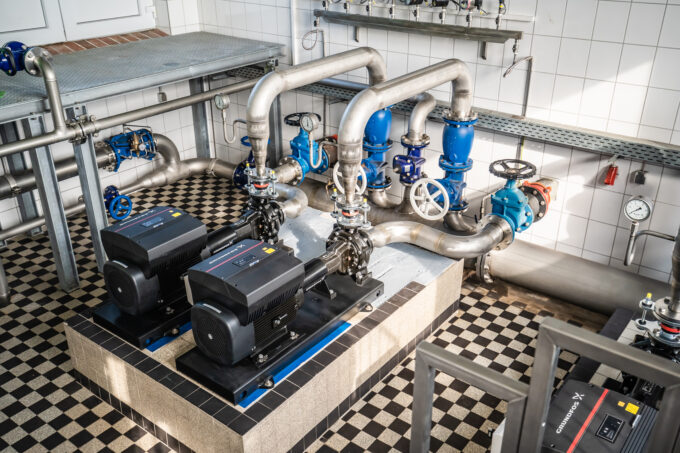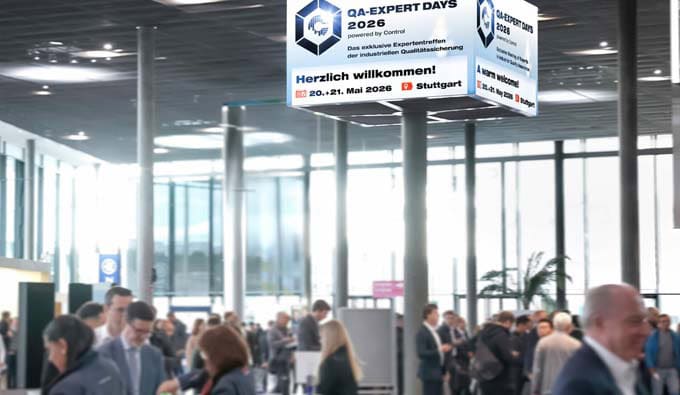"Innovation schizophrenia in hospital?"
The corona crisis has increased the public focus on hospitals. On staff and the situation in the wards. But what is the situation behind the scenes? For Horst Träger, President of the Fachvereinigung Krankenhaustechnik e.V. (FKT), neglect of the infrastructure is a major problem.

| Lack of skilled workers, cost pressure and the development towards the formation of a group of companies put pressure on those responsible in hospitals. "A hospital that wants to survive today must not only be profitable, but also deliver quality results and focus on employee retention. Because this goal cannot be achieved without motivated and satisfied employees," says Träger, summarizing the challenges facing hospitals. However, the compulsion to work cost-efficiently also causes problems for Träger. This can be seen in the introduction of lower personnel limits and the connection of surgical robots to obsolete supply systems. |
| Modern technology - outdated infrastructure |
| The current corona pandemic shows once again that functional hospital operations are absolutely essential, especially in times of crisis. But the discrepancy between modern technology and simultaneously outdated infrastructure is another problem for the FKT President. Nowadays, hospitals often only modernise visible technology, but no investments are made behind the scenes. However, long-term operational reliability is equally important. "I like to call it innovation schizophrenia. Unfortunately, there is still a lot of catching up to do in the German healthcare system," says Träger. |
| Increase energy efficiency, reduce costs, protect the environment |
| There is an effective way for hospitals and commercial enterprises to reduce costs: energy modernization measures. These can drastically reduce energy consumption and the associated climate-damaging CO2 emissions. For example, highly efficient heating pumps consume up to 80 percent less electricity than older models. Less electricity means lower costs - a clear advantage for the environment and the budget. "Technical managers have always relied on efficient systems, but the rethinking must take place in hospital management and cost units," demands Träger. Often the responsible persons lack the budget, although the need for modernization measures definitely exists: "70 to 80 percent of the pumps in Germany are wrongly designed", knows Thomas Arnold, office manager of pesContracting GmbH. |
| Modernise without investment |
| This is exactly where pesContracting comes into play and offers companies and institutions a complete project realization - from stocktaking, technical planning and provision of high quality pump systems to reconstruction, installation, maintenance and continuous recording of the energy balance. Via purchase, hire purchase or leasing, operators can choose the financing option that suits them best. The advantage: "The costs are based on the verifiable reduction in consumption, so that - except for the purchase - no investments are incurred by the customer," says Olaf Behrendt, sales manager of pesContracting. At purchase, the costs are amortized after two to four years. That it is worth taking a look at old pumps is shown by the retrofit at the Ludwigshafen Clinic: The pump replacement achieves energy savings of more than 70,000 euros per year. Träger, too, is convinced of the concept: "Increasing efficiency and reducing costs without equity is a great concept". |
| The state will continue to promote the replacement of heating pumps and hot water circulation pumps until the end of 2020, but Träger would like to see the problem of outdated infrastructure recognised at federal level as well. This is because hospitals rely on the latest technical equipment without the operators investing in maintenance, repair and modernisation of the technical infrastructure. In order to further relieve hospitals, Träger is calling for better coordination between the federal states: "Unfortunately, there are great differences from one federal state to the next in the support provided to hospitals. There is still a lot of work ahead of us." |
The white paper "More efficiency by replacing pumps" with interesting tips and recommendations can be downloaded free of charge at www.pumpenaustausch.eu can be requested.
(Visited 211 times, 1 visits today)









